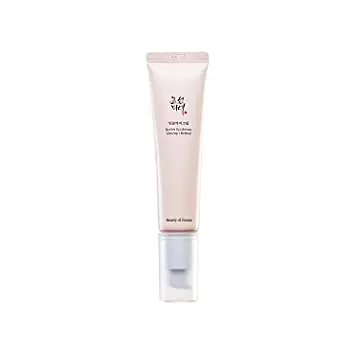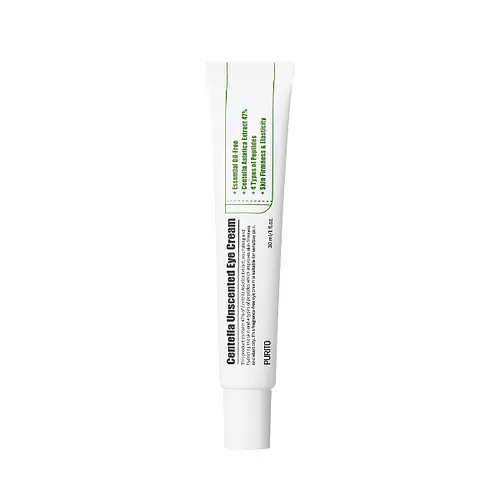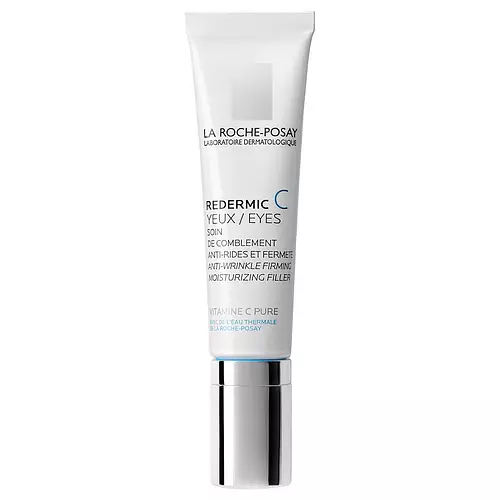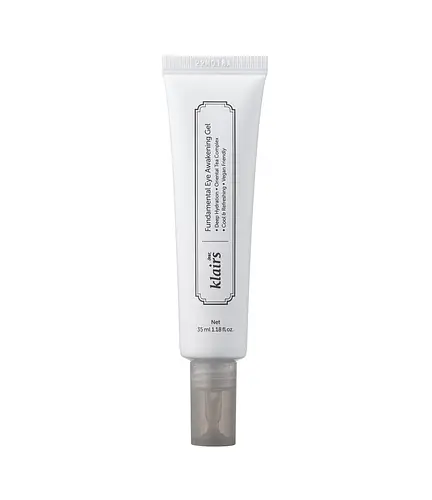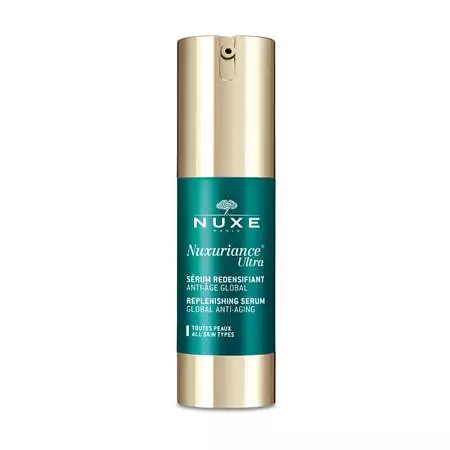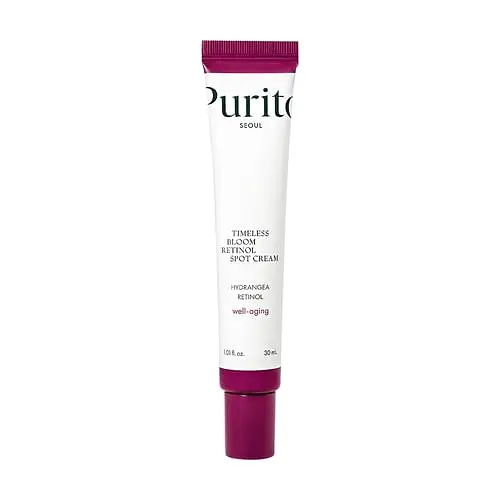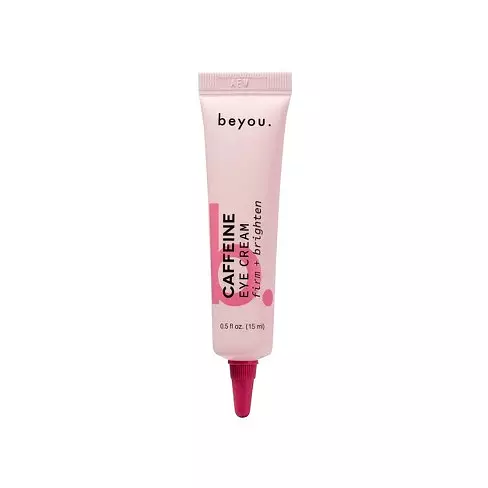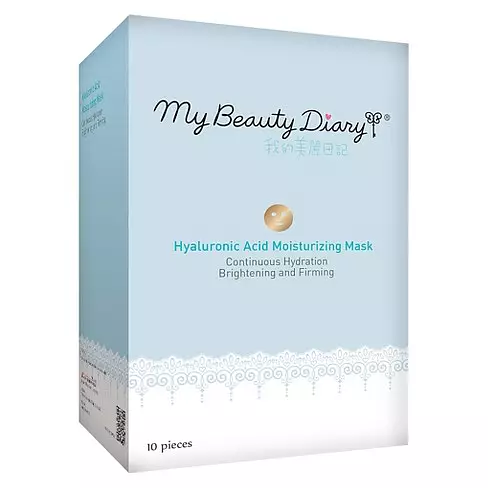Updated on July 18, 2023
Overview
What they are
These products are both vegan, cruelty-free, and reef safe eye moisturizers. They have a total of 16 ingredients in common
Cool Features
They both contain ceramides, hyaluronic acid and peptides
Suited For
They're both likely to be good for fighting acne, anti aging, dry skin, brightening skin, reducing pores and scar healing
Free From
They both do not contain any harsh alcohols, common allergens, fragrances, parabens or sulfates
What's Inside
They both contain oils
We independently verify ingredients, and our claims are backed by peer-reviewed research. Spot a product that needs an update? Let us know.
Ingredient Info
Beauty of Joseon Revive Eye Serum : Ginseng + Retinal 37 ingredients
PURITO Centella Unscented Eye Cream 44 ingredients
- Pentaerythrityl Tetraisostearate
- Cetearyl Alcohol
- Cetearyl Olivate
- Sorbitan Olivate
- Palmitic Acid
- Stearic Acid
- Limnanthes Alba Seed Oil
- Argania Spinosa Kernel Oil
- Macadamia Ternifolia Seed Oil
- Butyrospermum Parkii Butter
- Myristic Acid
- Arachidic Acid
- Palmitoyl Tetrapeptide-7
- Palmitoyl Tripeptide-1
- Palmitoyl Hexapeptide-12
At a glance
Click on any of the items below to learn more
Beauty of Joseon Revive Eye Serum : Ginseng + Retinal 37 ingredients
PURITO Centella Unscented Eye Cream 44 ingredients
Notable Ingredients
This product contains 1 ingredient that may have this attribute:
This product contains 1 ingredient that may have this attribute:
This product contains 1 ingredient that may have this attribute:
This product contains 1 ingredient that may have this attribute:
This product contains 1 ingredient that may have this attribute:
This product contains 2 ingredients that may have this attribute:
This product contains 1 ingredient that may have this attribute:
Benefits
This product contains 4 ingredients that may have this attribute:
This product contains 2 ingredients that may have this attribute:
This product contains 3 ingredients that may have this attribute:
This product contains 2 ingredients that may have this attribute:
This product contains 2 ingredients that may have this attribute:
This product contains 4 ingredients that may have this attribute:
This product contains 2 ingredients that may have this attribute:
This product contains 4 ingredients that may have this attribute:
This product contains 2 ingredients that may have this attribute:
This product contains 4 ingredients that may have this attribute:
Concerns
This product contains 1 ingredient that may have this attribute:
This product contains 1 ingredient that may have this attribute:
This product contains 1 ingredient that may have this attribute:
This product contains 3 ingredients that may have this attribute:
This product contains 1 ingredient that may have this attribute:
Benefits
This product contains 4 ingredients that may have this attribute:
This product contains 3 ingredients that may have this attribute:
This product contains 5 ingredients that may have this attribute:
This product contains 1 ingredient that may have this attribute:
This product contains 3 ingredients that may have this attribute:
This product contains 1 ingredient that may have this attribute:
This product contains 1 ingredient that may have this attribute:
This product contains 1 ingredient that may have this attribute:
Concerns
This product contains 4 ingredients that may have this attribute:
This product contains 2 ingredients that may have this attribute:
Ingredients Side-by-side
Ingredients Explained
These ingredients are found in both products.
Ingredients higher up in an ingredient list are typically present in a larger amount.
Glycerin is already naturally found in your skin. It helps moisturize and protect your skin.
A study from 2016 found glycerin to be more effective as a humectant than AHAs and hyaluronic acid.
As a humectant, it helps the skin stay hydrated by pulling moisture to your skin. The low molecular weight of glycerin allows it to pull moisture into the deeper layers of your skin.
Hydrated skin improves your skin barrier; Your skin barrier helps protect against irritants and bacteria.
Glycerin has also been found to have antimicrobial and antiviral properties. Due to these properties, glycerin is often used in wound and burn treatments.
In cosmetics, glycerin is usually derived from plants such as soybean or palm. However, it can also be sourced from animals, such as tallow or animal fat.
This ingredient is organic, colorless, odorless, and non-toxic.
Glycerin is the name for this ingredient in American English. British English uses Glycerol/Glycerine.
Learn more about GlycerinDipropylene Glycol is a synthetically created stabilizer and solvent. It is a part of the glycol class in the alcohol family.
Dipropylene Glycol helps dissolve and evenly distribute ingredients. It also helps decrease viscosity and thin out texture.
As a masking agent, Dipropylene Glycol can be used to cover the smell of other ingredients. However, it does not have a scent.
Studies show Dipropylene Glycol is considered safe to use in skincare.
Learn more about Dipropylene Glycol1,2-Hexanediol is a multi-tasker ingredient. It acts as a preservative to increase shelf-life and can aid other preservatives in preventing microbe growth. 1,2-Hexanediol also helps the skin retain moisture as a humectant.
In products that are water-based, this ingredient can help stabilize perfumes and fragrances. It can also help make the texture of products softer and more smooth.
Cetearyl alcohol is a mixture of two fatty alcohols: cetyl alcohol and stearyl alcohol. It is mainly used as an emulsifier. Emulsifiers help prevent the separation of oils and products. Due to its composition, it can also be used to thicken a product or help create foam.
Cetearyl alcohol is an emollient. Emollients help soothe and hydrate the skin by trapping moisture.
Studies show Cetearyl alcohol is non-toxic and non-irritating. The FDA allows products labeled "alcohol-free" to have fatty alcohols.
This ingredient is usually derived from plant oils such as palm, vegetable, or coconut oils. There is debate on whether this ingredient will cause acne.
Due to the fatty acid base, this ingredient may not be Malassezia folliculitis safe.
Learn more about Cetearyl AlcoholSorbitan Olivate is created from the fatty acids in olive oil and sorbitol.
Sorbitan Olivate is an oil in water emulsifier. It helps stabilize a product by preventing oils and waters from separating. Sorbitan Olivate also helps hydrate the skin.
Manufacturers sell sorbitan olivate under the name OliveM 1000. OliveM 1000 a multifunctional ingredient. It is self-emulsifying. According to a manufacturer, OliveM 1000 does not disrupt natural skin biome.
Learn more about Sorbitan OlivateCetearyl Olivate is an emulsifier and texture enhancer. It is derived from the fatty acids of olive oil and Cetearyl alcohol, and is biodegradable.
As an emulsifier, it is used to prevent oils and waters from separating. It can also
Manufacturers use the name Olivem 1000. This ingredient has been found to preserve the natural microbiome of skin. Having a healthy microbiome helps keep our skin healthy and protects against harmful bacteria. This ingredient is grouped with Sorbitan Olivate under the name Olivem 1000.
Learn more about Cetearyl OlivateButylene Glycol (or BG) is used within cosmetic products for a few different reasons:
- It is a solvent, meaning that it helps to dissolve other ingredients. This also enhances the absorption of the product into one's skin.
- It is a humectant, which means that it helps attract moisture into the skin.
- It helps improve product application.
Overall, Butylene Glycol is a safe and well-rounded ingredient. It is unlikely to irritate skin, and works well with pretty much all other ingredients.
Tromethamine is an aliphatic compound. An aliphatic compound is an organic compound with open-chained carbon atoms. It is synthetically created. Tromethamine is used to balance pH and improve texture.
As an emulsifier, Tromethamine prevents oil and water ingredients from separating. This helps stabilize the product and elongate a product's shelf life. Tromethamine also makes a product thicker.
Tromethamine helps balance the pH level of a product. Normal pH level of skin is slightly acidic (~4.75-5.5). The acidity of our skin is maintained by our glands and skin biome. Being slightly acidic allows our skin to create an "acid mantle". This acid mantle is a thin barrier that protects our skin from bacteria and contaminants.
Oral Tromethanmine is an anti-inflammatory drug but plays the role of masking, adding fragrance, and/or balancing pH in skincare.
1,3-Propanediol, 2-amino-2-(hydroxymethyl)-
Learn more about TromethamineCarbomer is a polymer of acrylic acid. Its main role is to create gel consistency within products.
Carbomer is commonly found in many types of cosmetics products. It is found to be safe in concentrations up to 15%. However, a high amount of carbomer can cause pilling or balling up of products. Most products contain 1% of less of carbomer.
Macadamia Ternifolia Seed Oil is the fixed oil obtained from Macadamia nut.
Macadamia seed oil is rich in fatty acids, including oleic acid (45-75%), palmitoleic acid (7-33%), and palmitic acid (6-12%). They also contain various B vitamins, iron, and magnesium.
Palmitoleic acid has been shown to help soothe inflammation and promote wound healing. It is also naturally found in the fat of our skin.
Macadamia seed oil may not be malassezia folliculitis, or fungal-acne, safe.
Learn more about Macadamia Ternifolia Seed OilAdenosine is in every living organism. It is one of four components in nucleic acids that helps store our DNA.
Adenosine has many benefits when used. These benefits include hydrating the skin, smoothing skin, and reducing wrinkles. Once applied, adenosine increases collagen production. It also helps with improving firmness and tissue repair.
Studies have found adenosine may also help with wound healing.
In skincare products, Adenosine is usually derived from yeast.
Learn more about AdenosineSodium Hyaluronate is hyaluronic acid's salt form. It is commonly derived from the sodium salt of hyaluronic acid.
Like hyaluronic acid, it is great at holding water and acts as a humectant. This makes it a great skin hydrating ingredient.
Sodium Hyaluronate is naturally occurring in our bodies and is mostly found in eye fluid and joints.
These are some other common types of Hyaluronic Acid:
Learn more about Sodium HyaluronatePotassium Cetyl Phosphate is the potassium salt of a mixture. This mixture consists of the esters from phosphoricacid and cetyl alcohol.
Potassium Cetyl Phosphate is an emulsifier and cleansing agent. Emulsifiers help stabilize a product. It does this by preventing certain ingredients from separating.
As a cleansing agent, Potassium Cetyl Phosphate helps gather oils, dirts, and pollutants from your skin. This makes it easier to rinse them away with water.
Learn more about Potassium Cetyl PhosphateCeramide NP is a type of ceramide.
Ceramides are intercellular lipids naturally found in our skin that bonds dead skin cells together to create a barrier. They are known for their ability to hold water and thus are a great ingredient for dry skin.
Ceramides are an important building block for our skin barrier. A stronger barrier helps the skin look more firm and hydrated. By bolstering the skin ceramides act as a barrier against irritating ingredients. This can help with inflammation as well.
If you would like to eat ceramides, sweet potatoes contain a small amount.
Read more about other common types of ceramides here: Ceramide AP Ceramide EOP
Learn more about Ceramide NPPalmitoyl Tripeptide-1 is a 3-amino acid peptide. Peptides are building blocks for protein.
Palmitoyl Tripeptide-1 is a signal peptide. This means it tells our skin to create collagen. Collagen is a protein that makes connective tissue. Boosting collagen production leads to a healthier skin barrier. Having a healthy skin barrier means having firm and hydrated skin.
Palmitoyl Tripeptide-1 can help reduce wrinkles and make the skin look more youthful.
Read more about other common types of peptides here:
Learn more about Palmitoyl Tripeptide-1Disodium EDTA plays a role in making products more stable by aiding other preservatives.
It is a chelating agent, meaning it neutralizes metal ions that may be found in a product.
Disodium EDTA is a salt of edetic acid and is found to be safe in cosmetic ingredients.
Learn more about Disodium EDTAIngredient Ratings
Here's what our community thinks of the ingredients in these two products.
When to use
Beauty of Joseon Revive Eye Serum : Ginseng + Retinal 37 ingredients
PURITO Centella Unscented Eye Cream 44 ingredients


Reviews
Here's what our community thinks
Beauty of Joseon Revive Eye Serum : Ginseng + Retinal 37 ingredients
Oliviarc
The ONLY products that has faded my dark circles, consistent use is the key and my eye area is looking the best it has in years (and I'm only 18)
HarrietandValentine
Just a great value for such a solid product. Retinal is so much more effective than retinol so I'm glad this is the star ingredient. It feels...
Just a great value for such a solid product. Retinal is so much more effective than retinol so I'm glad this is the star ingredient. It feels really gentle around my eyes and for the price, I can easily use it on my entire face, neck, and chest as well.
PURITO Centella Unscented Eye Cream 44 ingredients
AnaG
Hydrating and calming. I use it with my reusable eyepatches (I put it in the patches and feeze them for a few minutes) between the patches and the...
Hydrating and calming. I use it with my reusable eyepatches (I put it in the patches and feeze them for a few minutes) between the patches and the cold I manage the undereye bags when I don't sleep enough.
screamadelica
fantastic eye cream
not only is this a great eye cream with excellent ingredients, but it is amazingly inexpensive! costs less than an hour of work...
fantastic eye cream
not only is this a great eye cream with excellent ingredients, but it is amazingly inexpensive! costs less than an hour of work at my job.
